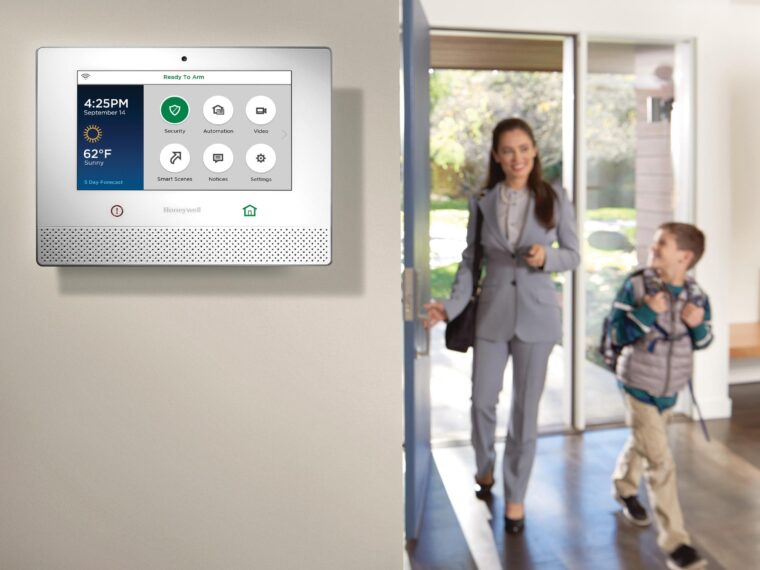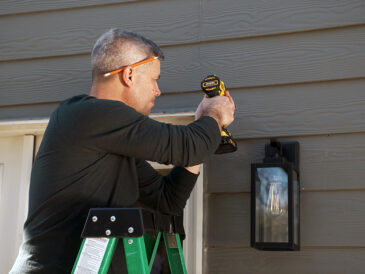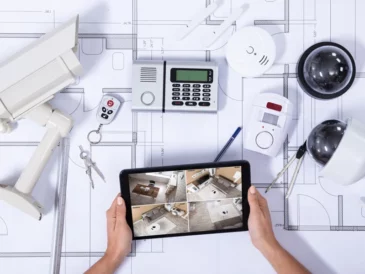In an age where safety and security are paramount, residential security systems have become an essential consideration for homeowners. With the rise in crime rates and the increasing sophistication of criminal activities, investing in a robust security system is not just wise; it’s necessary. This article delves into the various aspects of residential security systems, from their components to the benefits they offer, ensuring you are well-informed when making decisions regarding your home’s safety.
Understanding Residential Security Systems
Residential security systems are designed to protect homes from intrusions, theft, and other potential threats. These systems can vary significantly in complexity and technology, ranging from basic alarm systems to comprehensive smart home integrations. Understanding the different types of systems available is crucial for homeowners looking to enhance their security.
Types of Security Systems
There are several types of residential security systems, each catering to different needs and preferences. The most common include:
- Wired Security Systems: These systems are hardwired into the home’s electrical system, providing a reliable connection. However, installation can be more invasive, and they may require professional help.
- Wireless Security Systems: Utilising radio frequencies, these systems are easier to install and can be placed anywhere within the home. They are ideal for renters or those looking for a less permanent solution.
- Smart Security Systems: Integrating with home automation systems, smart security solutions offer remote access and control via smartphones. Features often include video surveillance, motion detection, and automated alerts.
Key Components of Security Systems
Regardless of the type, most residential security systems share common components that work together to provide comprehensive protection:
- Control Panel: The central hub of the security system, the control panel allows users to arm or disarm the system and manage other components.
- Sensors: These include door and window sensors that detect unauthorized entry, as well as motion sensors that monitor movement within the home.
- Cameras: Surveillance cameras can be placed both inside and outside the home, providing visual monitoring and recording capabilities.
- Alarms: Audible alarms alert homeowners and neighbours of a potential breach, deterring intruders and notifying authorities.
In addition to these fundamental components, many modern security systems now offer advanced features that significantly enhance their effectiveness. For instance, some systems include facial recognition technology, which can distinguish between familiar faces and strangers, thereby reducing false alarms. Additionally, the integration of artificial intelligence allows for predictive analytics, enabling the system to learn patterns of behaviour and alert homeowners to any unusual activity. These innovations not only bolster security but also provide peace of mind, knowing that your home is being monitored by cutting-edge technology.
Moreover, the importance of user-friendly interfaces cannot be overstated. Many security systems now come equipped with intuitive mobile applications that allow homeowners to monitor their property in real-time. These apps often feature live video feeds, notifications for sensor activations, and the ability to control various aspects of the home environment, such as lighting and thermostats. This level of control ensures that homeowners can respond promptly to any security concerns, whether they are at home or away, making it easier than ever to maintain a secure living space.
Benefits of Installing a Security System
The advantages of having a residential security system extend beyond mere theft prevention. Homeowners can experience a multitude of benefits, enhancing not only their safety but also their peace of mind.
Deterrence of Criminal Activity
One of the most significant benefits of a security system is its ability to deter crime. Visible security cameras and alarm systems can discourage potential intruders from targeting a home. Studies have shown that homes without security systems are more likely to be broken into, making the presence of such systems a powerful preventive measure.
Remote Monitoring and Control
Modern security systems often come equipped with remote monitoring capabilities. Homeowners can access live feeds from security cameras, receive alerts about suspicious activity, and even control their systems from anywhere in the world via smartphone applications. This level of control provides an added layer of security, especially for those who travel frequently or spend long hours away from home.
Insurance Benefits
Many insurance companies offer discounts on homeowners’ insurance premiums for properties equipped with security systems. This can lead to significant savings over time, making the initial investment in a security system even more worthwhile. Homeowners should consult with their insurance providers to understand the specific discounts available.
Choosing the Right Security System
With the variety of options available, selecting the right security system can be daunting. However, by considering several key factors, homeowners can make informed decisions that best suit their needs.
Assessing Your Security Needs
Before purchasing a security system, it is essential to assess the specific security needs of your home. Factors to consider include:
- The size of your property: Larger homes may require more sensors and cameras to cover all entry points.
- Your neighbourhood: Understanding the crime rate in your area can help determine the level of security needed.
- Your lifestyle: Consider how often you are home and whether you travel frequently, as this may influence the type of system you choose.
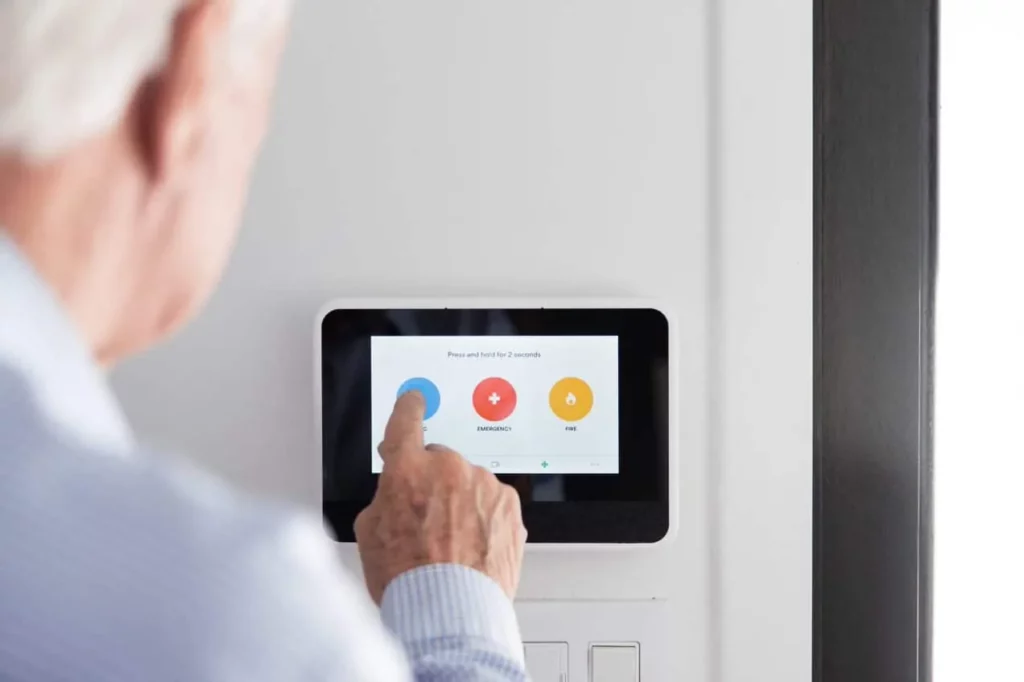
Budget Considerations
Security systems can vary greatly in price, from basic models to high-end smart systems. It is crucial to establish a budget that aligns with your financial situation while still providing adequate protection. Keep in mind that while a higher price may indicate better technology or features, there are also reliable budget-friendly options available. Learn more about wireless home security systems: safe, easy, and affordable.
Professional Installation vs. DIY
Another factor to consider is whether to opt for professional installation or a DIY system. Professional installation can ensure that the system is set up correctly and functions optimally, but it often comes at an additional cost. DIY systems, on the other hand, can be more affordable and allow homeowners to customise their security setup. However, they require a certain level of technical proficiency to install and maintain.
Maintaining Your Security System
Once a security system is installed, regular maintenance is essential to ensure it operates effectively. Neglecting maintenance can lead to system failures, leaving your home vulnerable.
Regular Testing
Homeowners should regularly test their security systems to confirm that all components are functioning correctly. This includes checking sensors, cameras, and alarms. Many systems have self-test features that can simplify this process, but it is still advisable to perform manual checks periodically.
Updating Software and Firmware
For smart security systems, keeping software and firmware up to date is crucial. Manufacturers often release updates that improve system performance and security. Failing to update can leave systems susceptible to cyber threats, especially in an increasingly digital world.
Battery Replacement
Many security systems rely on battery power for sensors and cameras. Regularly checking and replacing batteries is vital to ensure that the system remains operational. Some systems even provide alerts when batteries are running low, making it easier for homeowners to stay on top of maintenance.
Future Trends in Residential Security
As technology continues to evolve, so too do residential security systems. Homeowners should stay informed about emerging trends that could enhance their security measures.
Integration with Smart Home Technology
One of the most significant trends is the integration of security systems with smart home technology. This allows homeowners to control various aspects of their home—such as lighting, heating, and security—from a single device. Such integration not only enhances convenience but also improves overall security, as homeowners can automate responses to potential threats.
Artificial Intelligence and Machine Learning
Artificial intelligence (AI) is increasingly being incorporated into security systems. AI can analyse patterns of behaviour, helping to distinguish between normal activity and potential threats. This technology can lead to more accurate alerts and reduce false alarms, enhancing the overall effectiveness of security systems.
Enhanced Video Surveillance
Video surveillance technology is also advancing, with features such as high-definition video, night vision, and motion tracking becoming more common. These enhancements provide clearer images and more reliable monitoring, making it easier for homeowners to identify potential threats and provide evidence if required.
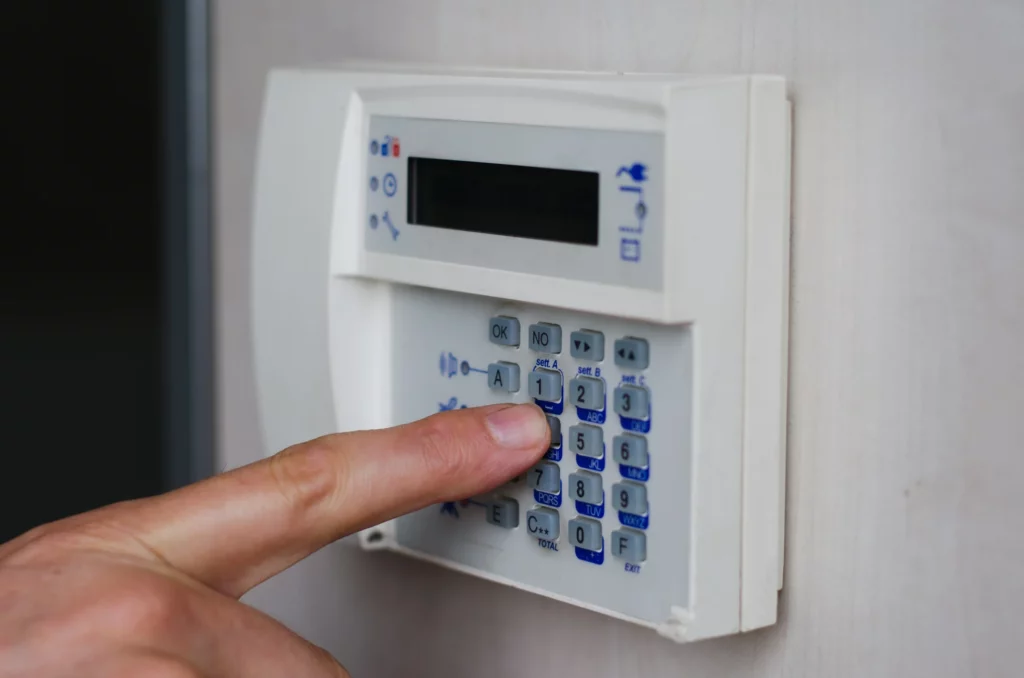
Conclusion
Investing in a residential security system is a proactive step towards safeguarding your home and loved ones. By understanding the various types of systems, their benefits, and the factors to consider when choosing one, homeowners can make informed decisions that enhance their security. Regular maintenance and staying abreast of future trends will ensure that your security system remains effective and reliable. Ultimately, a well-chosen and maintained security system not only protects your property but also provides invaluable peace of mind.

